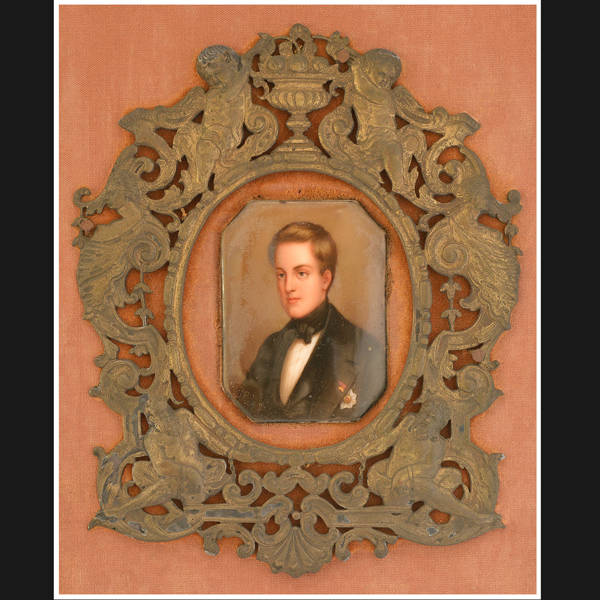Latest Photo Galleries
Brazilian Markets
17h33 Bovespa |
-0,33% | 125.148 |
16h43 Gold |
0,00% | 117 |
17h00 Dollar |
-0,77% | 5,1290 |
16h30 Euro |
+0,49% | 2,65250 |
ADVERTISING
Moving, Great-Grandson of Princess Isabel Auctions Items from the Imperial Family in Brazil
04/19/2017 - 12h57
Advertising
LUIZA FRANCO
FROM RIO
Princess Isabel's great-grandson wants to empty the stuff. Except that the stuff, in his case, contains items like the menu from the ball at the Ilha Fiscal (Fiscal Island), the monarchy's last party before the Proclamation of the Republic; a crown from his great-grandfather, the count of d'Eu; and dishes from the Qing Dynasty (1644-1911).
Dom Pedro de Alcântara Carlos João Lourenço Miguel Rafael Gabriel Gonzaga de Bourbon de Orléans e Bragança, the last member of the imperial Family to live in the palace, is moving from Petrópolis (State of RJ) to an apartment in Itaipava, a neighboring city, and decided to auction objects that he inherited from his ancestors.
The auction for the collection will be held on Wednesday and Thursday (19th-20th) at an antique dealer in Copacabana.
Those who are interested can launch their bids on the internet. There are 395 lots that together should generate between R$ 800 thousand and R$ 1,2 million (US$ 254 and US$ 381 thousand), according to an art-dealer.
The objects and their values range from a salad bowl made of soap stone in the shape of a duck, with a minimum bid set at R$ 10 [US$ 3,17] (bids already launched at R$250 [US$ 79] on Tuesday), to dinner serving sets from the Brazilian Imperial House, with minimum bids set at R$ 40 thousand (US$ 12,7 thousand) [still no bids].
There is a crown that count d'Eu received for his actions in the War of Morocco (1859-1960); a menu, coffee cups and saucers from the Ilha Fiscal ball; a kind of riding whip which belonged to Isabel; lithographs which depict scenes from imperial Brazil.
Important pieces from the family collection are not included, like daguerreotypes (early photographs) of Orléans and Bragança, since they are frequently loaned out to expositions.
This is not the first time that Dom Pedro Carlos has sold off family objects. In 2006, he sold the gold quiver that princess Isabel used to sign the Lei Áurea (Áurea Law), which abolished slavery in 1888.
Translated by LLOYD HARDER




